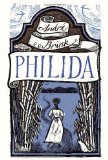Book Club Discussion Questions
In a book club? Subscribe to our Book Club Newsletter!
Please be aware that this discussion guide will contain spoilers!
- The author André Brink begins each chapter of Philida with a synopsis of what's going to happen. How does this affect your reading experience—does it spoil what is coming, or does it pique your interest?
- What does Philida's experience talking with the government official "Grootbaas Lindenberg" reveal about the way blacks and whites were treated in South Africa in the 1830s?
- Although Philida is the title character, she is not the only narrator in the novel. Why do you think Brink includes other voices? How does it shape the story?
- How does this representation of slavery in South Africa compare to what you know about slavery in the United States? And how does the novel compare to books you might have read about the experiences of American slaves?
- Philida spends much of the novel traveling, usually on foot. How does her physical journey mirror her personal journey toward freedom?
- Cornelis Brink, Frans's father says, "We Brinks are a boat that has always hugged the coast, no matter what storms have come, but Philida has now cut a hole into it and we may sink if we don't watch out" (p.75). What does he mean by this and what influence has Philida had on each member of the family?
- When they are children, Frans and Philida play a game in which he pretends to sell her, until she decides "that's now enough. Now it's your turn to be the slave and I'll be the Baas" (p.103). How does this foreshadow later events?
- Cornelis says of his slaves that he "looked after them and cared for them like children" (p.127). He also claims that "if I hadn't saved [the children Janna brought with her from her first marriage] they would all have gone straight to hell" (p. 213). Do these two statements support each other? Does Cornelis really treat his slaves and his children in ways that are at all similar?
- Throughout the novel, Philida is regularly seen knitting. What is the significance of this?
- "If I can write his name, I can send him to hell. Otherwise he'll keep on haunting me" (p. 189), Philida says about Frans. What is the importance of her being able to write? How does this relate to the power dynamic between masters and slaves?
- How do Labyn's efforts to convert, and perhaps woo, Philida differ from Frans's? Is her decision to be with him really her own?
- Frans tells his father that what he "wanted from Philida was what I want from a woman who is my wife" (p. 200). Do you believe him? What specific actions suggest that he is either lying or that he is telling the truth?
- The promise of emancipation looms throughout the novel. Philida tells Cornelis that after leaving his family that "they say that next year in December I'll be free. But here inside me I'm already free" (p.229). What does being "free" mean to Philida? What does it mean to you?
- Philida is a book with one woman at its heart, but what do you make of the other female characters? How are Janna, Mrs. de la Bat, Ouma Nella, Maria Berrangé, and the others, presented? How are they like or unlike Philida herself?
- When she is a child, Philida asks Ouma Nella, "Where am I not?" (p. 116). What does she mean by this, and how does this relate to her decision to travel to the Gariep at the end of the book?
- The novel concludes with the word "I" (p. 304). What do you think Brink is indicating by ending on this note? What do you think it means that the author chose to end the book with no period after the word?
- The Brinks in this novel were relatives of the author's. In his acknowledgements, André Brink writes that "the discovery that [Philida's] master Cornelis Brink was a brother of one of my own direct ancestors, and that he sold her at auction after his son Francois Gerhard Jacob Brink had made four children with her, triggered this novel" (p. 305). Were you shocked by this revelation? How does the fact that Brink has personal ties to Philida's owners affect the way you think about the novel?
Unless otherwise stated, this discussion guide is reprinted with the permission of Vintage.
Any page references refer to a USA edition of the book, usually the trade paperback version, and may vary in other editions.
